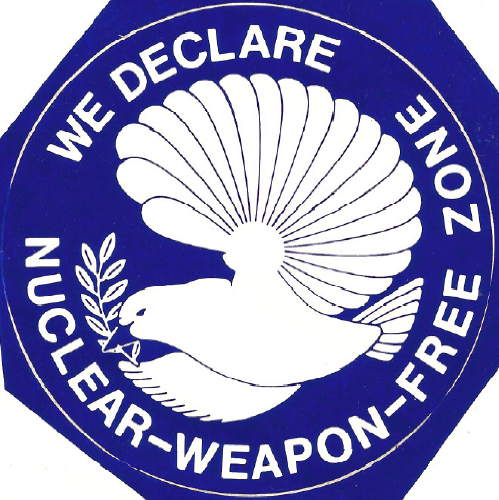Daily Report Archives
Established in December 1993, the Nautilus Institute’s *N*ortheast *A*sia *P*eace and *S*ecurity *N*etwork (NAPSNet) Daily Report served thousands of readers in more than forty countries, including policy makers, diplomats, aid organizations, scholars, donors, activists, students, and journalists.
The NAPSNet Daily Report aimed to serve a community of practitioners engaged in solving the complex security and sustainability issues in the region, especially those posed by the DPRK’s nuclear weapons program and the threat of nuclear war in the region. It was distributed by email rom 1993-1997, and went on-line in December 1997, which is when the archive on this site begins. The format at that time can be seen here.
However, for multiple reasons—the rise of instantaneous news services, the evolution of the North Korea and nuclear issues, the increasing demand for specialized and synthetic analysis of these and related issues, and the decline in donor support for NAPSNet—the Institute stopped producing the Daily Report news summary service as of December 17, 2010.
This report, written by L. J. Droutman, et al in October 1979 for Oak Ridge National Laboratory, notes that “the development of a quality control/assurance consciousness [necessary for a modern LWR] together with a cadre of qualified and experienced supervisors and skilled workers would take 15-20 years involvement and experience in nuclear plant construction… There is no short cut to gaining the needed experience”
Read a short summary of this report here.
Go to the article

James E. Goodby, former US ambassador and special representative for Nuclear Security and Dismantlement and affiliate of the Center for Northeast Asian Policy Studies at The Brookings Institution and Donald Gross, former senior advisor in the U.S. Department of State and former Asia policy advisor to President Obama, write, “Although a solution to the basic political and security issues in Northeast Asia is not likely to be found in the near future, we should be clear about one other thing: U.S. disengagement from talks with North Korea effectively contributes to instability in the region. Strategic patience is no longer viable. Diplomatic initiatives and vision must replace passivity, and soon.”
Go to the article
Tong Kim, visiting professor at the University of North Korean Studies and visiting research professor at Korea University, writes, “If the South Korean government were operating in the wake of the Yeonpyeong incident with the assumption that the North Koreans would not be ready for a war, it would be too risky. President Lee said, “…a disgraceful peace achieved through intimidation only brings greater harm in the end. Only courage that defies retreat under any threat or provocation will bring about genuine peace.” The South Koreans do not have to be intimated or retreat from threats or provocation. Yet, they should be able to find a better path to achieve “genuine peace” with confidence that they can prevent a war that nobody wants. It will take courage to talk to the North in the current environment. Maybe dialogue should wait until the dust settles. Nevertheless, dialogue is the best solution. People want peace, not war. Peace is achievable.”
Go to the article
Contents in this Issue: I. NAPSNet 1. DPRK on ROK Military Drill 2. Russia on ROK Military Drill 3. US-DPRK Relations 4. PRC on DPRK Nuclear Talks 5. Japan Defense Guidelines 1. DPRK on ROK Military Drill Agence France-Presse (“N.KOREA VOWS TO STRIKE BACK IF SOUTH HOLDS ISLAND DRILL”, 2010/12/17) reported that the DPRK’s […]
Go to the article
Jungmin Kang, an Associate of the Nautilus Institute-ARI in Seoul and Visiting Scholar at John Hopkins University School of Advanced International Studies, writes, “Considering its potential safety superiority compared with normal geologic disposal, deep borehole disposal could be an alternative, which could be more acceptable to local communities, for the eventual disposal of spent fuel and/or HLW in South Korea.”
Go to the article
Peter Hayes, Executive Director of the Nautilus Institute, and David von Hippel, Nautilus Institute Senior Associate, explore the feasibility of deep borehole nuclear waste storage in East Asia. The report presents summaries of the current concept of deep borehole disposal of nuclear wastes, key unknowns and uncertainties about deep borehole-related technologies as they apply to nuclear spent fuel disposal, the status of deep borehole research both internationally and in the countries of the region, and–finally–next steps in the exploration of the applicability of the deep borehole concept to cooperative nuclear waste management solutions in East Asia.
Go to the article

Yuasa Ichiro, President of the Peace Depot, writes, “The formation of a NEA-NWFZ will be a significant initial step to establish a non-military security in Northeast Asia. Through the multilateral treaty talks, confidence among concerned nations will be built. It could also be an opportunity to pave the way to an agreement of no attack and renunciation of war. This is indeed a process toward a “Common security” in the region and I strongly believe that the cooperation of citizens in the Asia-Pacific area to this end would contribute greatly to reduce the military expense.”
Go to the article



